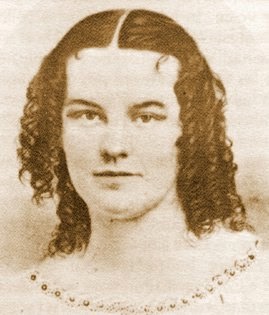There is some talk here of your going abroad as a consul — but dont y' do it. Dont y' Darst! You've got a bigger mission than t'go to any dam ol' forin port.
Garland was playfully using the same kind of dialect Riley became known for in his poetry. Garland also couldn't resist a stab at another writer, Bret Harte, who had recently taken successive consul appointment in Germany and Scotland. After his political appointments were up, Harte stayed in Europe and settled in London — causing some critics to suggest that his time overseas took the American-ness out of him. As Garland writes to Riley:
You'll be like Bret Harte git fat an' forget what y'r country looks like — an you'll fergit the "County Ditch" an' Kingry's Mil an' all them thare things we like t' hear about.
Riley never was offered an appointment after all, and his work continued to utilize the same kind of folksy tone that Garland seemed to love, like that used in Riley's poem "Kingry's Mill":
On old Brandywine — about
Where White's Lots is now laid out,
And the old crick narries down
To the ditch that splits the town,—
Kingry's Mill stood. Hardly see
Where the old dam ust to be;
Shallor, long, dry trought o' grass
Where the old race ust to pass!
That's be'n forty years ago —
Forty years o' frost and snow —
Forty years o' shade and shine
Sence them boyhood-days o' mine—!
All the old landmarks o' town.
Changed about, er rotted down!
Where's the Tanyard? Where's the Still?
Tell me where's old Kingry's Mill?
Don't seem furder back, to me,
I'll be dogg'd! Than yisterd'y,
Since us fellers, in bare feet
And straw hats, went through the wheat,
Cuttin' 'crost the shortest shoot
Fer that-air old ellum root
Jest above the mill-dam — where
The blame' cars now crosses there!
Through the willers down the crick
We could see the old mill stick
Its red gable up, as if
It jest knowed we'd stol'd the skiff!
See the winders in the sun
Blink like they wuz wonderun'
What the miller ort to do
With sich boys as me and you!
But old Kingry—! Who could fear
That old chap, with all his cheer—?
Leanin' at the window-sill,
Er the half-door o' the mill,
Swoppin' lies, and pokin' fun,
'N jigglin' like his hoppers done—
Laughin' grists o' gold and red
Right out o' the wagon-bed!
What did he keer where we went—?
"Jest keep out o' devilment,
And don't fool around the belts,
Bolts, ner burrs, ner nothin' else
'Bout the blame machinery,
And that's all I ast!" says-ee.
Then we'd climb the stairs, and play
In the bran-bins half the day!
Rickollect the dusty wall,
And the spider-webs, and all!
Rickollect the trimblin' spout
Where the meal come josslln' out—
Stand and comb yer fingers through
The fool-truck an hour er two—
Felt so sorto' warm-like and
Soothin' to a feller's hand!
Climb, high up above the stream,
And "coon" out the wobbly beam
And peek down from out the lof'
Where the weather-boards was off—
Gee-mun-nee! w'y, it takes grit
Even jest to think of it—!
Lookin' 'way down there below
On the worter roarin' so!
Rickollect the flume, and wheel,
And the worter slosh and reel
And jest ravel out in froth
Flossier'n satin cloth!
Rickollect them paddles jest
Knock the bubbles galley-west,
And plunge under, and come up
Drippin' like a worter-pup!
And to see them old things gone
That I onc't was bettin' on,
In rale p'int o' fact, I feel
kindo' like that worter-wheel—,
Sorto' drippy-like and wet
Round the eyes — but paddlin' yet,
And in mem'ry, loafin' still
Down around old Kingry's Mill!




















